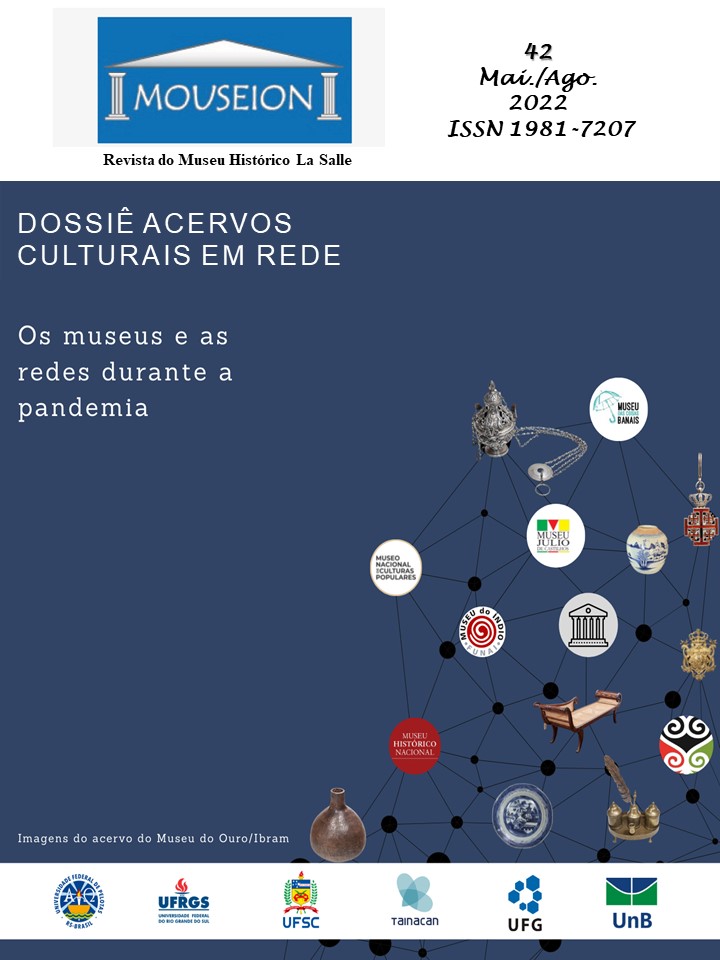Online museal education in the pandemic: practices, theory and challenges
DOI:
https://doi.org/10.18316/mouseion.v0i42.10453Keywords:
Museum education, online museum education, cyberculture, pandemic, educational sectorAbstract
The long and recent closure of museums and other cultural and educational facilities, due to the Covid-19 pandemic, has increased the debates about the presence of these institutions in cyberspace and the development of online educational and cultural activities. This article seeks to contribute to this debate, based on the experiences and actions of the Educational Sector (SAE) of the National Museum (MN), Federal University of Rio de Janeiro (UFRJ). Therefore, some museum education activities that made use of digital network technologies are here presented and discussed. The concept of Online Museum Education (MARTI, 2021), developed from online museum education activities undertaken on SAE's digital social networks since 2018, occupies the centre of the reflections, at a time that precedes both the fire of great proportions that hit the Museum National and the Covid-19 pandemic, ongoing since March 2020. The article contemplates the historical aspects related to the uses of different media in museum education practice, as well as practical, theoretical and methodological aspects related to Online Museum Education. Some of the challenges to be overcome by Museum Education in the interface with Cyberculture are also listed. Some of the challenges to be overcome by Museum Education in relation to Cyberculture are also listed. Contrary to the view that museum educators are those professionals who only work within the museum, namely in educational visits carried out in the context of exhibitions, the analysis of the set of museum educational activities carried out by SAE in 2020 and 2021 shows that these professionals occupy different spaces-times in their practices and make use of different knowledge, resources and strategies to promote conversational, collaborative, co-authoring environments in interactivity, aiming at the critical development of their public and social transformation.
Downloads
Published
Issue
Section
License
Authors must submit their manuscripts to be published in this journal agree with the following terms:
Authors maintain the copy rights and concede to the journal the right of first publication, with the paper simultaneously licensed under the License Creative Commons attribution that permits the sharing of the paper with recognition of authorship and initial publication in this journal.
Since the articles are presented in this journal of public access, they are of free use, with their own attributions for educational and non-commercial purposes.


